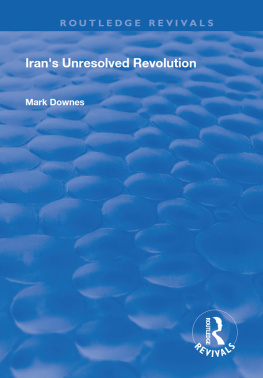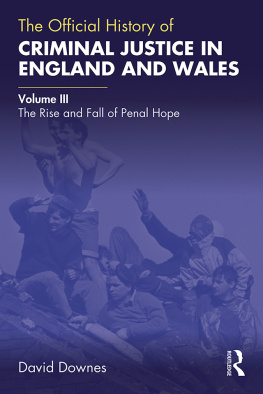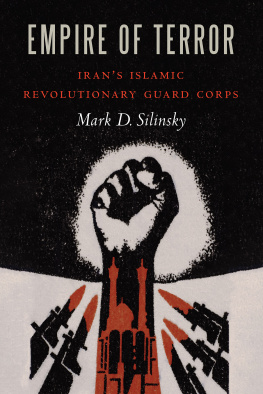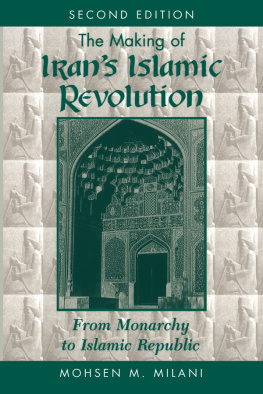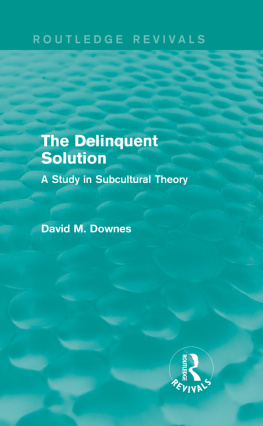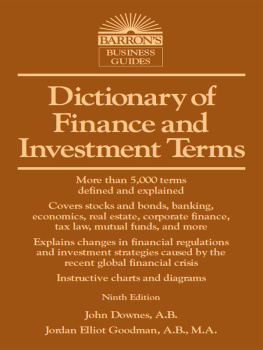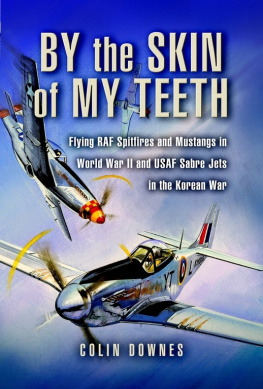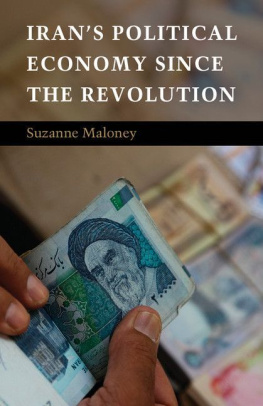IRANS UNRESOLVED REVOLUTION
Dedicated to all those who dare to dream in the darkness of night.
Irans Unresolved Revolution
MARK DOWNES
First published 2002 by Ashgate Publishing
Reissued 2018 by Routledge
2 Park Square, Milton Park, Abingdon, Oxon OX14 4RN
711 Third Avenue, New York, NY 10017, USA
Routledge is an imprint of the Taylor & Francis Group, an informa business
Copyright Mark Downes 2002
The author has asserted his moral right under the Copyright, Designs and Patents Act, 1988, to be identified as the author of this work.
All rights reserved. No part of this book may be reprinted or reproduced or utilised in any form or by any electronic, mechanical, or other means, now known or hereafter invented, including photocopying and recording, or in any information storage or retrieval system, without permission in writing from the publishers.
Notice:
Product or corporate names may be trademarks or registered trademarks, and are used only for identification and explanation without intent to infringe.
Publishers Note
The publisher has gone to great lengths to ensure the quality of this reprint but points out that some imperfections in the original copies may be apparent.
Disclaimer
The publisher has made every effort to trace copyright holders and welcomes correspondence from those they have been unable to contact.
A Library of Congress record exists under LC control number: 2002074707
ISBN 13: 978-1-138-72029-9 (hbk)
ISBN 13: 978-1-315-19514-8 (ebk)
Contents

Map of Iran and the Middle East
Since September 11th 2001 the goals of the Islamic movement and Islamic government has been called into question. Their compatibility with the ideals of western society and concepts such as democracy and human rights have been openly queried. No country has epitomised the ideals of Islamic governance and the spirit of the Islamic movement more that the Islamic Republic of Iran. It has been accused by the Bush administration of being a sponsor of terrorism, yet in the aftermath of the event of September 2001 it was viewed, for the first time in over two decades, as a reflection of the moderate face of the Islamic movement. It is very possible that Iran could reflect both of these ideas, for its is a fractured society. It has a government that is factionalised to the extent that its left hand does not know, although it may suspect, what the right hand is doing. Invariably in Iran, it is the right hand that pulls the internal strings of government that reflect negatively in Iran abroad.
Broadly speaking this work began as an attempt to understand the development of Iran revolutionary movement and ended up being much more. It is a both a study of Irans various movement, both Islamic and revolutionary and a snap shot of Iranian society as we enter into the third decade since the overthrow of the Shah and his authoritarian government. It is a reflection on Irans structure of governance and the prospects of President Khatamis attempts at reforming the system from within. The theory of revolution takes up a substantial part of this work. The events in Iran have led to a significant development in revolutionary theory and this work is an attempt to take these changes into account. A new approach to measuring socio-political unrest in society has been developed utilising Derridas concept of binary opposition and marrying it to an analysis of political structures.
This book divides into eight chapters. The first two chapters are largely historical, dealing with the development of Shiism as part of the Iranian character and a critique of the top-down approach to Islamising Iranian society that was taken by the post-1979 ruling administration. In maps the development of Iran from the politics of revolution to that of realpolitik. The hopes and aspirations associated with Khatamis second term as President and the potential for social unrest that is ever present in Iranian society will also be dealt with here.
This book is based broadly upon my PhD. Much of the content has also been presented at international conferences in Tehran, Timisoara, Belgrade, the ECPR in Canterbury and in Limerick. This work was made possible by the unyielding support and friendship of both Dr. Rory Keane (Belgrade Open School, Yugoslavia) and Jack Anderson (University of Limerick) with whom I shared some interesting times in Iran and who suffered through numerous discussions of revolutionary theory and Iranian politics. I must also single out Ali, whose friendship is one of the major byproducts of this work. Furthermore, I wish to thank my colleagues Dr. Barrie Wharton and John A. Loonam (University of Limerick). In addition, Professor Moxon-Browne and the Center for European Studies at the University of Limerick have always been immensely supportive. I also wish to thank my current employers, the Department of Accounting and Finance at the University of Limerick and the International Agency for Civic Diplomacy and Democratisation (IACDD) for affording me the time to complete this work. A special acknowledgement must go to Leanne Smith for her tireless support and timely interjections during the latter stages of this work, both of which have significantly enhanced the final product. And finally, I wish to thank Susanne for being so special.
Mark A. Downes
Belgrade, October 2002
With the worlds attention drawn once again towards the Persian Gulf and with Islams motives regarding western society again being called into question, it is both timely and necessary to bring our understanding of the Islamic movement and Islamic governance up to date. The Islamic Republic of Iran provides us with an interesting case for study. Borne out of a revolution that saw the overthrow of a secular western leaning autocrat, the political and social environment in Iran is unique in its attempts to simultaneously embrace the concept of representative government with Islamic institutions. It is easy to simply categorise Irans Islamic government as being a fundamentalist attempt to drag Iranian society back to the time and the practices of the Prophet Muhammad. It is more difficult to understand the underlying tension that is present in Iranian society, as it attempts to define itself in response to the modern era, in a way that does not forsake its vibrant cultural and religious heritage.
The importance of Irans strategic position on the Eastern Shore of the Persian Gulf has never been in doubt. Its ability to curtail traffic passing through the Straits of Hormuz, means that Iran and its government are of vital importance to successive western administrations dependant on oil exports from the region. Iran, whose history is marked by a series of invasions, has played an important role in the balance of power and security in the region. If one places Iran in its geo-political context, surrounded as it is to the East by Iraq and the erratic regime of Saddam Hussein, to the South-East by Afghanistan and the still unstable post-Taleban administration, to the North by the increasingly unstable Republics of the former Soviet Unions, it becomes evident how important the government and politics of Iran is for the peace and security of the region.
More importantly, however, is the role that Iran has played as ideological leader to a relatively small but vocal segment of the Islamic world. Ayatollah Khomeini in the aftermath of the establishment of the Islamic Republic offered Iran as an example not only to the Islamic community but also to all oppressed people of the world. Initially alienated, Iran aligned itself to fringe groups; some might say radical or fundamental groups, intent on overthrowing the current international system. That said, with time Iran has established itself as a mature international actor, as was seen in their neutrality with regard to the US bombardment of Afghanistan post-September 11th and their former role as chairperson of the OIC (Organisation of the Islamic Conference). At the same time Iran has persistently refused to partake in an international system to which it is ideologically opposed. It is Irans refusal to adhere to the current international system, which makes any study of the Iranian system not only interesting but also vital. The alternative or third way proposed by Ayatollah Khomeini and enshrined in the political life of Iran warrants further scrutiny.

 Map of Iran and the Middle East
Map of Iran and the Middle East
